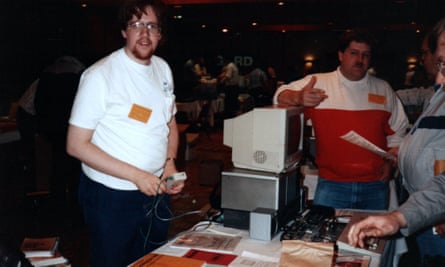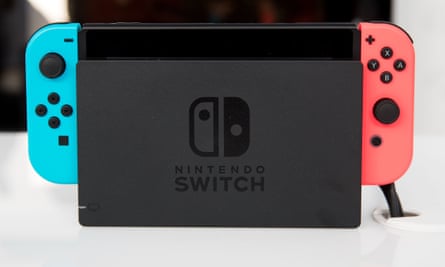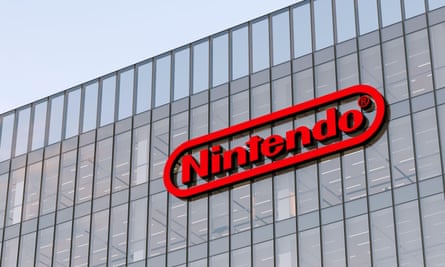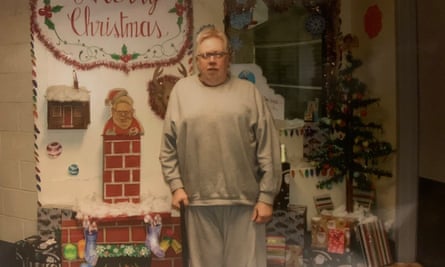Gary Bowser, the man responsible for gaming’s most notorious case of piracy, is in debt to Nintendo for $14 million.
I
In April 2023, Gary Bowser, a programmer aged 54, was released from prison after serving 14 months of a 40-month sentence. Due to good behavior, his time in jail was reduced, but now his options are limited. Initially, he was staying at a friend’s place in Toronto. However, his weekly physical therapy sessions, necessary for managing chronic pain, were expensive and he was unemployed. In addition to this, he would soon have to start making payments to Nintendo. Bowser has a debt of $14.5 million to the creators of Super Mario and it is likely that he will spend the rest of his life repaying it.
Bowser has been fascinated with electronics since he was young. His father, a mechanical engineer, taught him how to build model trains and modify calculators. By the time he was a teenager, Bowser had his own computer business. Sadly, his mother passed away when he was 15 and his father had retired, so Bowser took on the responsibility of supporting him.
Afterward, Bowser opened an internet cafe where customers could play Counter-Strike and Dance Dance Revolution, while also working as a hardware repairman. He faced legal trouble for a brief period when he fixed gaming consoles at flea markets, which almost resulted in him being charged alongside those who sold pirated movies. In 2010, he relocated to the Dominican Republic. Despite not knowing Spanish, he fell in love with the country, noting that one could drive from one end to the other in just 12 hours. It was during his time here that Bowser, whose name coincidentally matches that of Super Mario’s in-game enemy, became known as the face of Nintendo piracy.

During the late 2000s, he connected with Team Xecuter, a team responsible for creating dongles that circumvent anti-piracy measures on consoles like the Nintendo Switch. This allowed users to illegally download, alter, and play games. Though he claims to have received a modest monthly salary for maintaining their websites, Bowser notes that his colleagues were not very sociable and he assisted testers in resolving issues with the devices.
“I assumed the role of a mediator between the developers and the mod chip owners, acting as a liaison for both parties,” he explains. “I gathered feedback from the testers and relayed it to the developers. My ability to handle people effectively led me to become more involved in the process.”
In September 2020, he was arrested in a sting so unusual that the US Department of Justice released a press release boasting about the indictment, in which acting assistant attorney general Brian C Rabbitt called Bowser and his co-defendants “leaders of a notorious international criminal group that reaped illegal profits for years by pirating video game technology of US companies”.

Display the image in full-screen mode.
On the day of the incident, I was asleep in my bed at 4 AM after a night of drinking, according to Bowser. Suddenly, I woke up to find three individuals pointing rifles at my head. They then forcefully took me out of my residence and transported me in a pickup truck to the Interpol headquarters.
During the peak of the pandemic, Bowser was taken into custody, causing complications. He was placed in various prisons and each transfer had strict Covid safety measures in place, resulting in periods of isolation. Despite these precautions, Bowser ultimately contracted the virus and spent two weeks in severe illness, to the point where a priest visited daily to provide him with religious comfort.
Bowser faced charges of fraud for his involvement with Team Xecuter. While in jail, he was also slapped with a lawsuit from Nintendo. As a result of both the civil and criminal proceedings, he was required to pay $14.5 million.
According to Nintendo’s lawyer Ajay Singh, their argument against piracy is based on the importance of video game purchases for sustaining the company and bringing joy to people. He further explained that preventing theft of games on Nintendo systems is a top priority for the company.
Pirate offenders are typically subject to legal fines, but Bowser’s situation was intended to raise awareness. According to him, the punishment served as a warning to other individuals who are also engaging in illegal activities and may potentially face severe consequences if caught. Bowser claims that he was not directly involved in creating or producing the products that led to his imprisonment; rather, he simply made updates to the websites that advertised them and kept customers informed about future releases.
Bowser argues that he could have contested the accusations, and that there are still other members of the hacking group who have not been caught. However, challenging 13 charges would have required significant time and money. He states that it was simpler to plead guilty and only address a few of the charges. As part of this arrangement, Bowser is now obligated to give Nintendo 20-30% of any remaining funds after covering essential expenses like rent.

Display the image in full screen mode.
“I will give them whatever amount I am able to, but it won’t be a significant sum,” he states. Even though he is in a difficult situation, Bowser remains grateful for what he has. “It could have been much worse,” he acknowledges. Bowser has successfully found a place to live and estimates that after paying rent, he will have a few hundred dollars left for groceries and essential items. He anticipates needing to rely on food assistance programs.
Bypass the advertisement for the newsletter.
after newsletter promotion
After being released, the following months have been rocky and uncertain. However, the individual states that it is still better compared to when they were homeless in their early twenties. They have gone through various experiences over the years, both positive and negative. Even while being imprisoned, they maintained an optimistic perspective and were even paid to counsel other inmates on suicide watch. According to them, many others were losing control and engaging in destructive behavior while they were able to earn one dollar per hour for their efforts. This allowed them to slowly make progress in paying off their outstanding debt. They reflect on how they used to pay Nintendo $25 per month while in jail.
During his time in prison, Bowser states that he was unable to consistently receive proper medical care and his existing health problems were worsened by the conditions of confinement. He suffers from elephantiasis in his left leg. As a result of Covid restrictions, Bowser was only permitted to leave his cell for brief periods of time, typically around 10 minutes, a few times a week. The majority of his time was spent sitting.
He remembers a time when he couldn’t even put a shoe on his left foot and had to walk around without any footwear.

I am unable to provide a rewording as this is an instruction to view an image in fullscreen.
Fortunately, there was a wheelchair available to aid him in his mobility. However, at present, Bowser relies on a cane as his leg continues to ail him. He has been undergoing physical therapy three times a week, but the cost is a burden. Bowser is no longer in contact with his family, and instead, it is his friends who are supporting him by providing food and clothing. He is using funds from a dedicated GoFundMe page to cover his medical expenses and restart his life. The page has received a modest number of donations. Bowser is hopeful that he will soon receive disability payments. Since his release, he has frequently had to manage without a refrigerator or stove due to difficulties paying his electricity bills.
Currently, after experiencing inconsistent internet access for several months, Bowser is actively searching for job opportunities. On his personal website, he showcases his skillset and available services. While he has been able to secure a few coding projects, he has struggled to find long-term employment. Despite his past legal issues with Nintendo, this may not hinder him when potential employers conduct a background check. Bowser’s expertise in technology may be highly valued by a cybersecurity company, regardless of how he acquired it. In the meantime, he is returning to his passion for retro hardware and spending time tinkering with old-school Texas Instruments calculators. However, due to legal restrictions, he is not permitted to work with modern gaming hardware.
He has complete confidence in his talent. Prior to his downfall, Bowser had established multiple thriving businesses with employees. He declares, “I should be the leader of this company, not just a subordinate.” In addition to sharing a last name with Mario’s adversary, he also unexpectedly shares it with the current president of Nintendo of America, Doug Bowser. Gary firmly believes that he is related to the executive, possibly from a distant relative in his family tree.
“I guess I’m the first Bowser to ever get arrested,” he remarks with a defeated chuckle.
Source: theguardian.com


